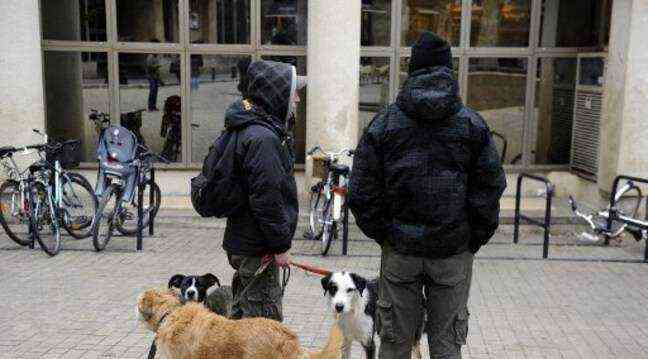This Tuesday, two deliberations concerning the homeless will be presented to the city council for a vote. Harmonie Lecerf, deputy mayor in charge of access to rights and solidarity, announced on Monday that modular housing of the Algeco type would be installed in the southern Bordeaux sector to house ten homeless people at the same time, in from mid-February 2022. This nine-month experiment may be repeated and a progress report is scheduled after six months.
A temporary welcome
The device is aimed at “young or old homeless who are very marginal, have difficulty finding their place in emergency accommodation and sometimes live with pets,” says the assistant. The city has joined forces with CEID (drug study and information committee), Prado, medico-social actor in Gironde, Samu social and GIP (public interest group) to mediate on this project. It should allow these people on the street to benefit from a “stabilization space adapted to their lifestyle”, while waiting for a place in a care establishment or the integration of the “Parcours” system developed by the City, a accommodation or accommodation, or even returning to their families after a break-up episode. The length of stay will therefore be very variable, depending on the person. The receptions are unconditional, left to the free adhesion of the people and always temporary.
An unprecedented census
It is not known how many homeless people live in Bordeaux. “The figures vary depending on the players and we have no overall vision,” comments Harmonie Lecerf. Estimates range from several hundred to less than 2,000. To remedy this vagueness, a census operation is organized on January 20 during a night of solidarity to “better understand their profile and their needs and define public policies based on these identified needs”, explains the deputy.
This census is coupled with the mandatory one of the HMSA (mobile and homeless housing) which more broadly includes circus artists, fairgrounds, etc. Some 90 census agents accredited by INSEE will be team leaders and the city is looking for 300 volunteers “In order to best count the homeless people who live in the streets, in squats, in camps and in slums,” explains Harmonie Lecerf. The result will be a lever to possibly develop emergency accommodation in the territory even if the city specifies that it does not wait for it to worry about the fate of people on the street, in particular with the experimentation of modular housing. .

